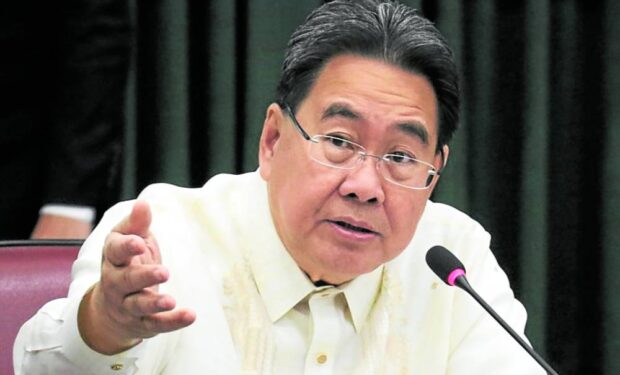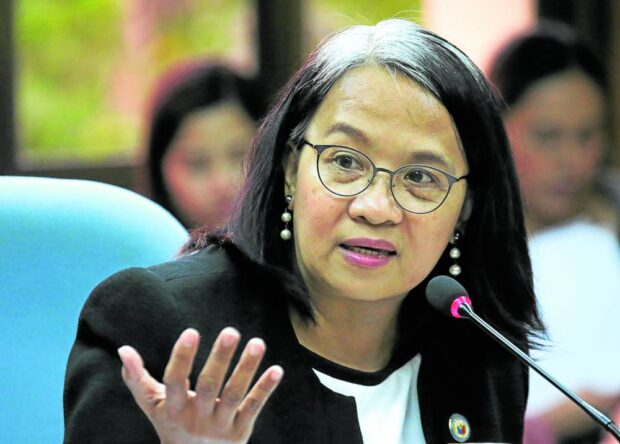‘Last-minute’ insertions in Cha-cha bills ruled out

Cagayan de Oro Rep. Rufus Rodriguez (File photo from his Facebook page)
MANILA, Philippines — Cagayan de Oro Rep. Rufus Rodriguez, a proponent of economic Charter change (Cha-cha) through Resolution of Both Houses No. 7 (RBH 7), ruled out on Tuesday the insertion of political amendments by the bicameral conference committee or the so-called “Third Congress.”
“[Our] RBH 7 is identical to [the Senate’s] RBH 6. So there is no chance,” Rodriguez, who chairs the House Committee on Constitutional Amendments, said during the plenary deliberation for RBH 7 at the lower chamber.
He was replying to Deputy Minority Leader France Castro, who raised the likelihood of further alterations to RBH 7 once it is discussed by a bicameral conference committee.
Castro, an ACT Teachers Party-list representative, cited instances in which bills or resolutions that were already approved on the third and final reading went through “significant changes” when these were taken up by the said committee. She noted that the House was treating RBH 7 as ordinary legislation in terms of procedure.
READ: Lawmakers again vow: No Cha-cha insertions
Article continues after this advertisement“[Fears] that there might be some political amendments will really be unfounded because it’s very clear in the Senate—three Articles: 12, 14 and 16. [It’s the] same here in the House of Representatives,” Rodriguez said, referring to the three economic provisions in the Constitution being targeted for amendment.
Article continues after this advertisement
ACT Teacher Partylist Rep. France Castro INQUIRER PHOTO/LYN RILLON
No chance
“There’s no chance that there will be any change to what we will approve here and what is expected to be approved in the Senate,” he stressed.
A bicameral conference committee is convened to reconcile conflicting provisions in similar bills passed separately by the Senate and House.
At the same time, Rodriguez said that during preliminary hearings held by his committee, the Commission on Elections estimated that it would cost P12 billion to hold a plebiscite to ratify the proposed Cha-cha.
Camarines Sur Rep. Gabriel Bordado Jr. argued that the money would be better spent addressing issues on education, particularly the classroom shortage nationwide, as well as health, housing and public transportation problems.
Not an expense
“[It] is not an expense but an investment for the Filipino nation because the crying need now is to have more investments to be able to give more jobs. So there is no cost,” Rodriguez told him, saying that the government was addressing the country’s pressing concerns.
“The primordial need of the times is to have Constitutional change,” he added. “According to former Chief Justice Reynato Puno, we will never consider [the] cost of the plebiscite as [an] expense but an investment toward the future of the Philippines.”
Bordado, however, insisted that there was no need to go through “the costly and time-consuming task” of Cha-cha to boost the economy. “Instead, we could continue introducing new legislation and amending existing ones to address pressing economic issues, particularly if urgency is our main concern,” he said.